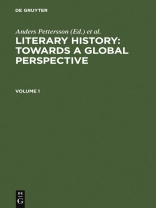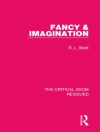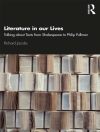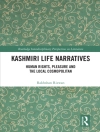Literary History: Towards a Global Perspective is a research project funded by the Swedish Research Council (Vetenskapsrådet). Initiated in 1996 and launched in 1999, it aims at finding suitable methods and approaches for studying and analysing literature globally, emphasizing the comparative and intercultural aspect.
Even though we nowadays have fast and easy access to any kind of information on literature and literary history, we encounter, more than ever, the difficulty of finding a credible overall perspective on world literary history. Until today, literary cultures and traditions have usually been studied separately, each field using its own principles and methods. Even the conceptual basis itself varies from section to section and the genre concepts employed are not mutually compatible. As a consequence, it is very difficult, if not impossible, for the interested layperson as well as for the professional student, to gain a clear and fair perspective both on the literary traditions of other peoples and on one’s own traditions.
The project can be considered as a contribution to gradually removing this problem and helping to gain a better understanding of literature and literary history by means of a concerted empirical research and deeper conceptual reflection. The contributions to the four volumes are written in English by specialists from a large number of disciplines, primarily from the fields of comparative literature, Oriental studies and African studies in Sweden. All of the literary texts discussed in the articles are in the original language.
Each one of the four volumes is devoted to a special research topic.
Inhoudsopgave
Vol. 1: Notions of literature across times and cultures
Anders Pettersson, Introduction: Concepts of literature and transcultural literary history; Marja Kaikkonen, Becoming literature: Popular fiction in twentieth-century China; Martin Svensson Ekström, One Lucky Bastard: On the hybrid origins of Chinese “literature”; Gunilla Lindberg-Wada, Japanese literary history writing: the beginnings; Gunilla Gren-Eklund, The pleasure of poetry – Sanskrit poetics and kâvya; Bo Holmberg, Adab and Arabic literature; Leif Lorentzon, Let the house be dead silent: A discussion of literariness in (East) African oral literature; Tord Olsson, Experiences of Orature in Sahelian West Africa
Vol. 2: Literary genres: an intercultural approach
Gunilla Lindberg-Wada, Literary genres: An intercultural approach; Noriko Thunman, The autobiographical novel ⁄short story “Watakushishôsetsu” in Japanese literature; Lena Rydholm, The theory of ancient Chinese genres; Christina Nygren, Drama for learning and pleasure: Japan, China and India in a comparative perspective; Kerstin Eksell, Genre in early Arabic poetry; Bo Utas, “Genres” in Persian literature 900–1900; Lennart Rydén, Byzantine saints’ Lives as a literary genre; Anders Pettersson, Conclusion: A pragmatic perspective on genres and theories of genres
Vol. 3: Literary interactions in the modern world
Margareta Petersson, Introduction: Cultural encounters between literary cultures. The example of the novel; Per Erik Ljung, Inventing traditions: A comparative perspective on the writing of literary history; Stephen Larsen, African literature, or African literatures? Reflections on a terminological problem; Keiko Kockum, The role of Western literature in the formation of the modern Japanese novel; Bo Holmberg, Transculturating the epic: The Arab awakening and the translation of the Iliad; Stephen Larsen, Euro-African dialogue: Some examples of African hypertexts of European hypotexts
Vol. 4: Literary interactions in the modern world
Leif Lorentzon, Something very light, perhaps a little educative: Negotiations of cultural hierarchies an the Ghanaian novel in English between Nkrumah and Armah; Nelson González-Ortega, Amerindian and European narratives in interaction; Margareta Petersson, Hybridity in Indian English literature; Stefan Helgesson, Modernism under Portuguese rule: José Craveirinha, Luandino Vieria and the doubleness of colonial discourse; Marja Kaikkonen, The detective in the service of the emperor, the republic, and the communist party; Christina Nygren, Appropriations of European theatre in Japan, China and India; Gail Ramsay, Globalisation and cross-cultural writing in the United Arab Emirates and Oman; Roberta Micallef, Cultural encounters in contemporary Turkish children’s literature: Victims or heroes?; Stefan Helgesson,
Going global: An afterword
Over de auteur
Gunilla Lindberg-Wada, University of Stockholm, Sweden; Stefan Helgesson, University of Uppsala, Sweden; Margareta Petersson, University of Växjö, Sweden; Anders Pettersson, University of Umeå, Sweden.












